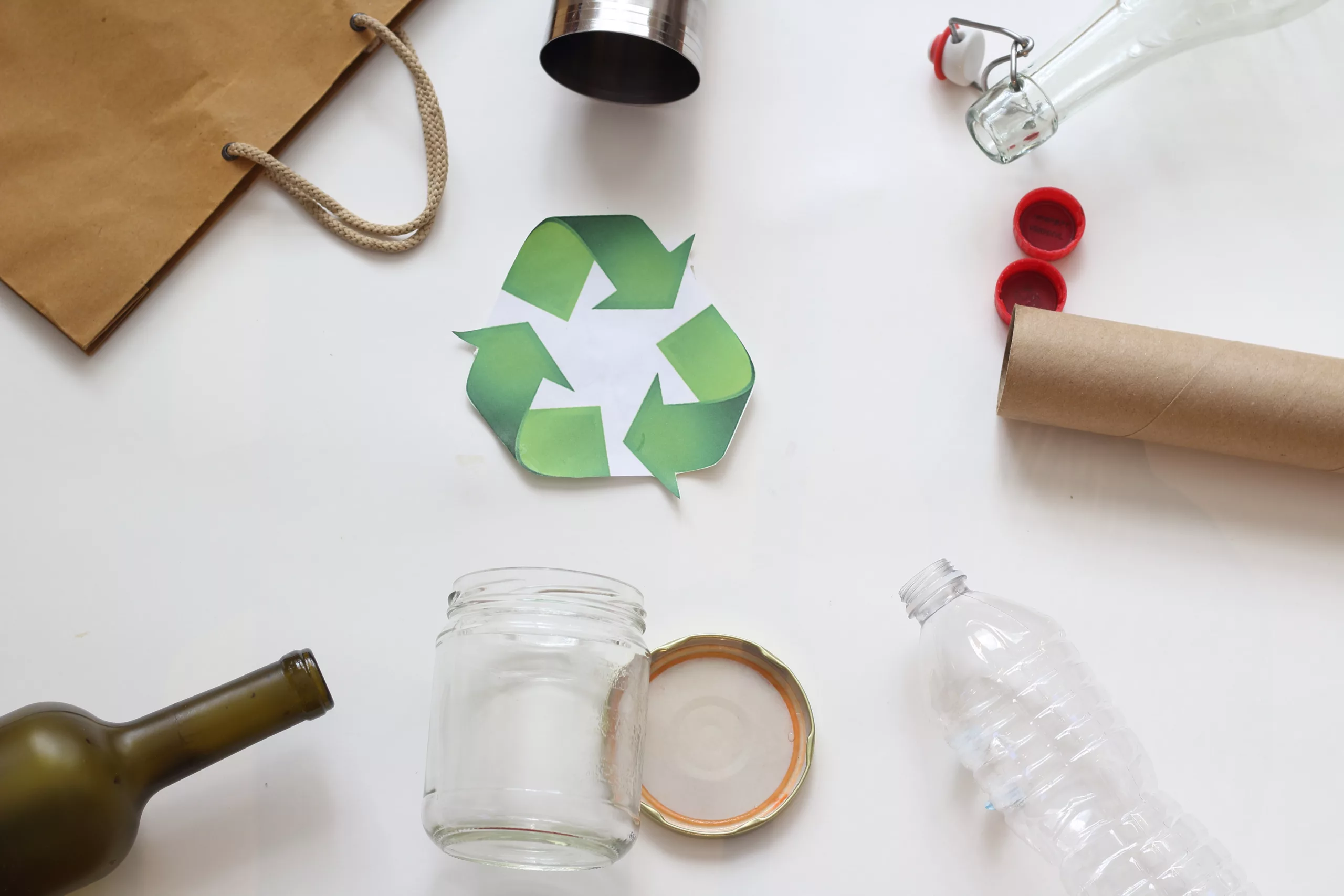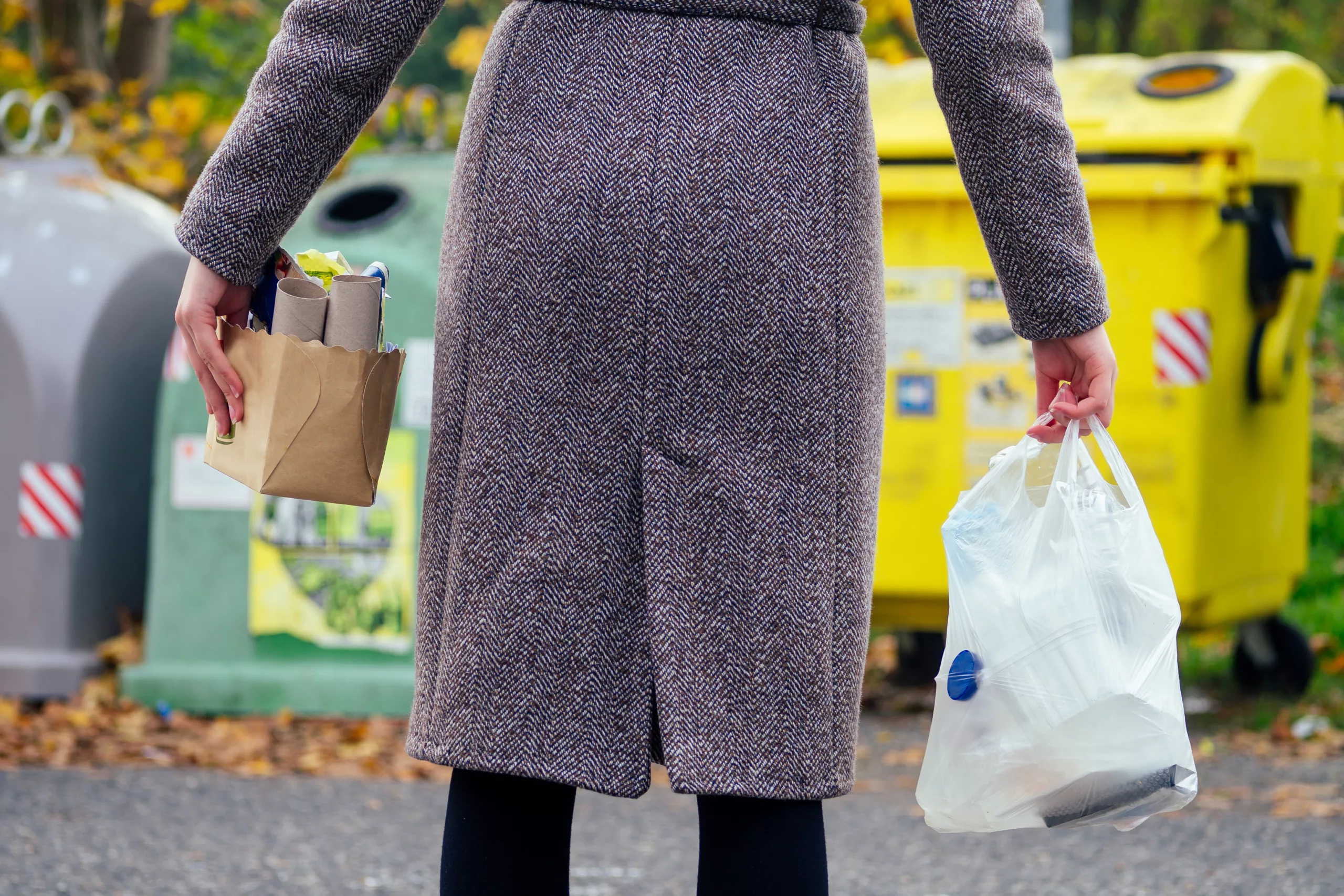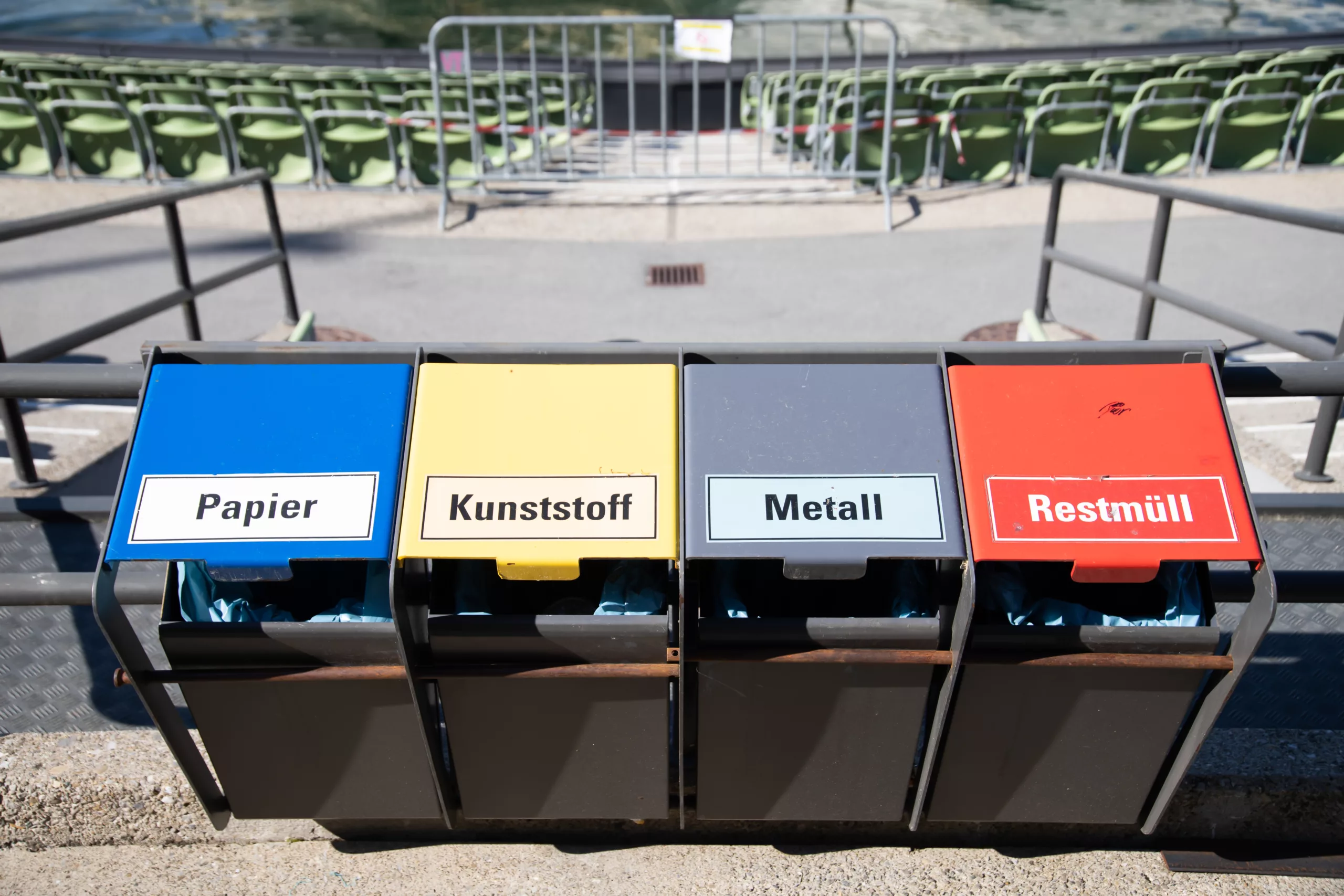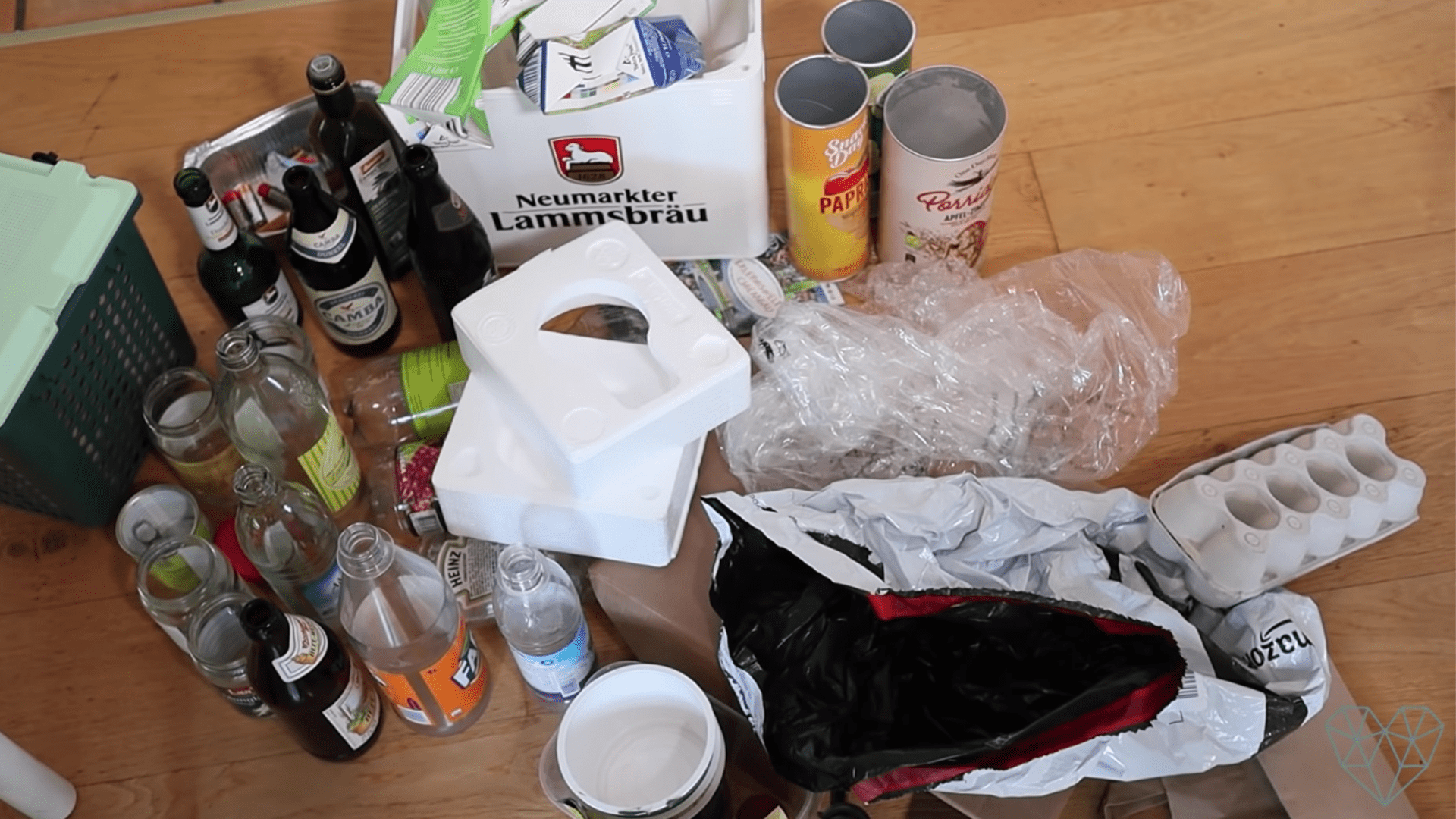Recycling in Germany vs. the USA – Which Country Does it Better?
Before we moved to Germany from the USA, we knew that recycling was important and something we’d need to learn about. But we were not prepared for just how much we had to learn once we arrived! It was as if we had to take a course on recycling properly in our area. In this post, we will also discuss recycling statistics between the USA and Germany and how Germany handles its trash.

Recycling in Germany Has Been Intense for Us!
In this video, you’ll see how Kevin has to separate our trash into 20 different categories each time he goes to the Wertstoffhof (recycling center and dump), which is about every two to three weeks. It must also be noted that we are more than happy to recycle well and reduce our waste in general, as being environmentally friendly is also important to us. So, bring it on, Germany!
We furnished our home mostly from IKEA before we arrived. Needless to say, we had cardboard coming out of our ears once we got here! You’ll see footage of just how crazy it got and how we eventually (two months later, once we got a car) were able to take it to the recycling center.
Recycling Practices Vary Across the Country
One thing we’d like to emphasize is the process of recycling is not the same all over the country. Most of our subscribers told us they have one “Gelbersak” (yellow sack) for all of their plastic recycling. They do NOT have to separate their trash into 20 categories like we have to do. We do live in a small town and area, so that probably has something to do with it.
Recycling in Germany vs. the USA
Germany has a well-developed recycling system that is widely recognized as one of the best in the world. The country is committed to protecting the environment by reducing waste and promoting sustainable practices.
In Germany, there are several laws and regulations in place to support recycling and waste reduction. For example, the Recycling and Waste Management Act requires that manufacturers take responsibility for the disposal of their products, including packaging. This has led to a high level of recycling of packaging materials.

Germany Leads Europe in Recycling Rates
In terms of recycling rates, Germany is a world leader. According to Eurostat, in 2019, Germany recycled 66% of its municipal waste, compared to 32% in the United States. In addition, Germany has a target to recycle 65% of all packaging by 2022. This is among the highest targets in Europe!
Germany Burns Trash to Generate Heat, But it’s Controversial
Germany also has a system of waste-to-energy plants that incinerate non-recyclable waste to generate electricity and heat. It should be noted that this practice is controversial. However, it is tightly regulated in Germany and is seen as a way to reduce landfill waste and generate renewable energy.
This practice is controversial because it generates air pollution and greenhouse gas emissions. Incineration can release toxic chemicals into the air, such as dioxins and heavy metals, which can have negative impacts on human health and the environment. Additionally, incineration produces ash, which must be disposed of in landfills.

The Waste-to-Energy Plants Have Strict Regulations
However, waste-to-energy plants in Germany are subject to strict regulations and emission standards. The standards are designed to minimize these negative impacts. In addition, the plants are required to recover energy from the waste, which helps to reduce the country’s dependence on fossil fuels and greenhouse gas emissions.
Does Germany Export their Waste to Other Countries?
As for the question about Germany exporting its waste to foreign countries, there have been cases where German waste was exported to other countries for disposal or recycling. However, this is a relatively small amount of waste, and the practice is generally discouraged by the German government. The European Union has also implemented regulations to limit the export of waste to non-EU countries.
Does the United States Export their Waste to Other Countries?
Yes, the United States exports a significant amount of its waste to foreign countries for disposal and recycling. According to data from the U.S. Environmental Protection Agency (EPA), in 2018, the U.S. exported approximately 4.1 million tons of plastic waste to other countries. These countries include China, Hong Kong, and Canada.

However, the situation has changed since China implemented restrictions on imports of recyclable materials in 2018, which has caused significant disruptions in the global recycling market. As a result, some of the waste that was previously exported to China has been redirected to other countries, such as Malaysia, Indonesia, and Vietnam.
Exporting Waste to Other Countries is Highly Controversial
It’s important to note that exporting waste to other countries is a controversial practice, as it can have negative impacts on the environment and public health in those countries. The Basel Convention, an international treaty aimed at controlling the movement of hazardous waste, has been ratified by over 180 countries, including the United States. The Convention restricts the export of hazardous waste from developed to developing countries, and also requires the exporting country to obtain consent from the importing country before sending the waste.

Similar Posts – Germany Inspires Us to Be More Eco Friendly
We also did an entire video on how living in Germany has made us more eco friendly. Check it out here! The overall vibe here in Germany is that nature is important and sustainability matters. In the US, it has been turned into bitter partisan issue and it’s really a shame. Everyone, including businesses, can benefit when we are all living mindfully of the environment.






